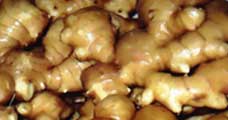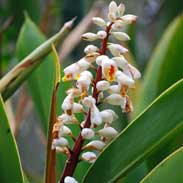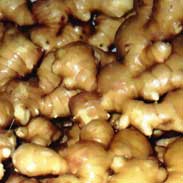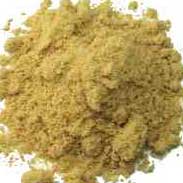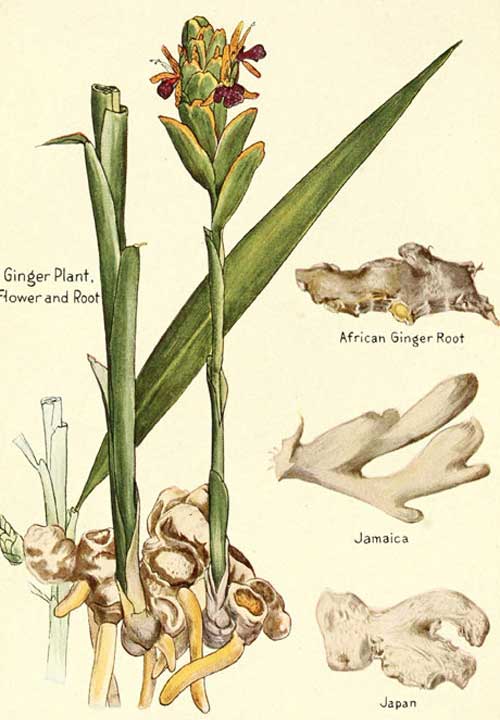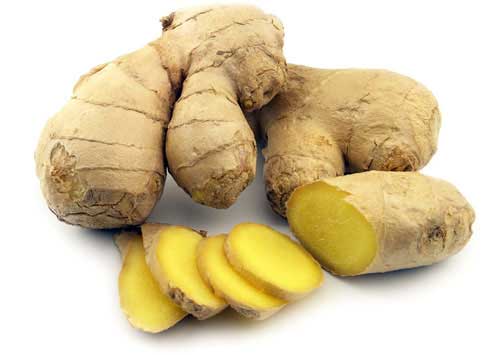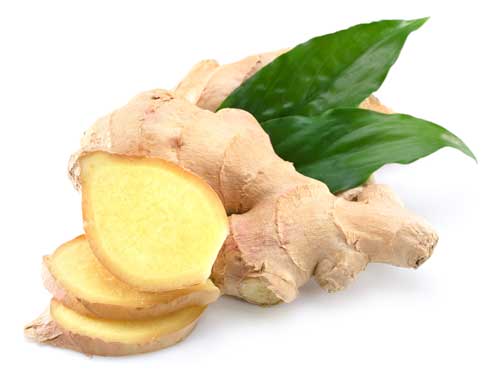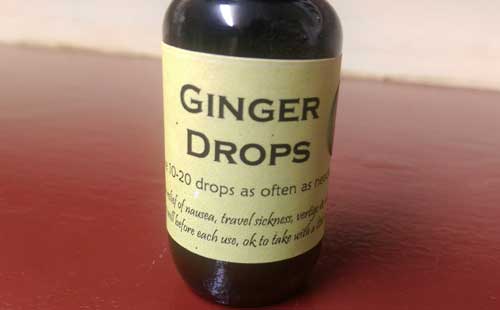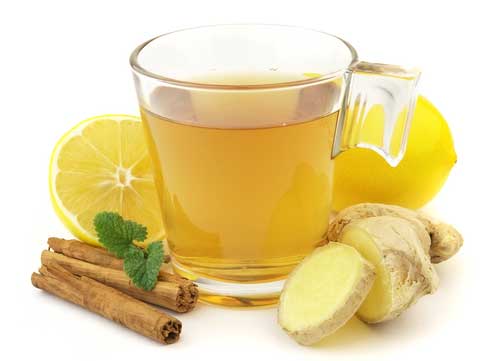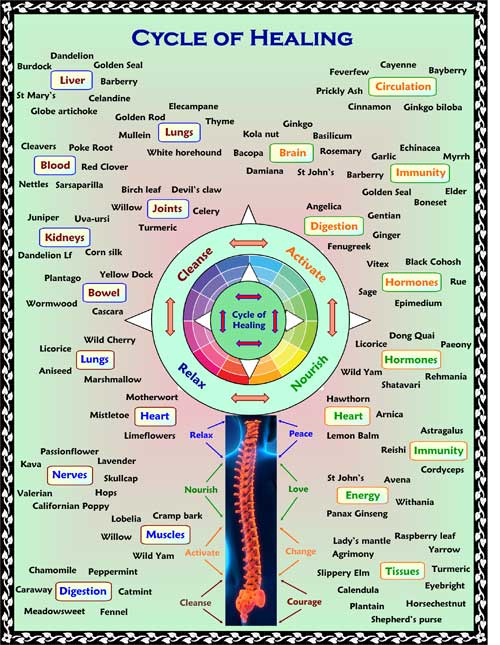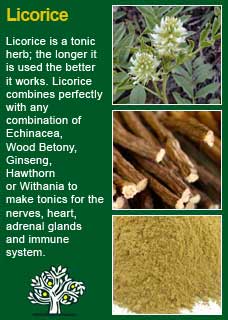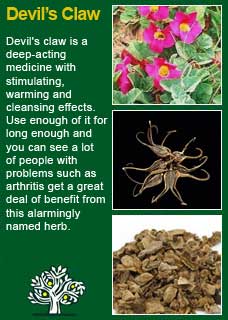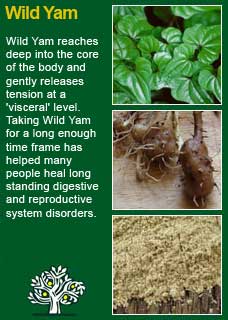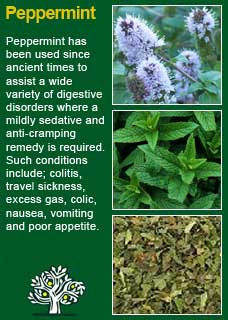
|
|
||||
| Our Pages ABOUT CONSTITUTIONAL MEDICINE
|
In both food and medicine, it is the roots of Ginger, a long-lived plant with attractive pink and white flowers on reed-like stems. Ginger is extensively cultivated in tropical countries such as India, Haiti and Nigeria and the knotty roots are usually harvested when the stalk has withered.
Andrew Chevallier writes 'familiar as a spice and flavouring, Ginger is also one of the world's best medicines. It has been revered in Asia since the earliest times and in medieval Europe it was thought to have derived from the Garden of Eden' Ginger has many traditional uses for problems involving the digestive system such as irritable bowel, diarrhoea, indigestion and colic. Even though it is obviously spicy Ginger reliably calms an upset stomach and promotes the secretion of the digestive juices; as such is it good for many problems related to poor food absorption Ginger can ease the typical abdominal discomfort after major surgery and it can often help restore appetite and digestive function in people who must endure the great trial of chemotherapy. Ginger acts like a gentler version of Cayenne to warm the body from the core and a common medicinal use of Ginger in cooler countries has been for poor circulation. In a similar fashion Ginger can be highly helpful for arthritis where its gentle heat literally helps the blood move more freely to better flush waste products away from stiff and swollen joints. Avicenna, in his Canon of Medicine, one of the most influential medical books in history, writes of Ginger as heating and drying. He says, 'it is a digestive drug suitable for the 'coldness' of the liver and the stomach, it enriches the faculty of memory and removes the moistness in the region of the head and throat' H Felter writes 'Ginger is a local irritant and rubefacient. It causes an increased flow of saliva and gastric juice and increases muscular activity of the stomach and intestines. It is much used to conceal the taste of nauseous medicines' King's Dispensatory writes Ginger has been used in combination for diarrhoea and dysentery and few articles are more valuable when there is coldness of the surface and extremities, and nausea and vomiting accompany. Ginger is much used to disguise other drugs, concealing their nausea, or preventing their tendency to cause colic. It is eminently useful in habitual flatulency, atonic dyspepsia, hysteria, and enfeebled and relaxed habits, especially of old and gouty individuals; and is excellent to relieve nausea, pains and cramps of the stomach and bowels, especially when those conditions are due to colds, or to the ingestion of unripe or otherwise unwholesome fruit. Ginger, in the form of "ginger tea," is popular and efficient as a remedy for breaking up colds, and in relieving the pangs of disordered menstruation WM Cook writes 'Ginger root is one of the most pleasant of all the stimulating aromatics, and deserves to be valued as one of the most reliable diffusives of the Materia Medica... it increases the flow of saliva and warms the stomach, and may be used in dryness of the mouth and as a good stomachic. The warm infusion promotes gentle and warm perspiration, favors an outward arterial flow, increases the mucous flow of the lungs and bowels, and relieves flatulence, internal congestions, and spasms... it is one of the prominent Physio-Medical remedies in all cases requiring aid to equalize the circulation and sustain the nervous system. Its influence in sudden nervous fatigue and prostration is excellent; and it is added to alterative and tonic preparations, when it is desirable to have a mild stimulant' Ellingwood writes 'Ginger is an emergency remedy. In every case in which brandy or whisky is given to produce an immediate stimulating influence, the tincture of ginger can be given with even better results. From half a teaspoonful to a teaspoonful will produce greater stimulation than half an ounce of brandy! Ginger stimulates the stomach actively, producing, a pleasing sense of warmth. It overcomes flatulence and quickly relieves flatulent colic. In atonic conditions of the stomach and intestinal tract, it stimulates the structure to renewed activity and materially assists in the restoration of normal tone' In dysmenorrhea, ovarian neuralgia and uterine pain from any cause at the menstrual epoch, this agent is reliable' T J Lyle writes 'The root is an aromatic, diffusive stimulant. It is one of the most useful agents of the materia medica; though last, it is not least. In hot infusion it is diaphoretic. When detained by congestion, it relieves the congestion and assists in reinstating the menstrual flow. It is one of the best agents in most grades of feverishness. In a large majority of compounds it is an excellent aromatic adjuvant. With cathartics it prevents nausea and griping' The British Herbal Pharmacopoeia (BHP) describes it as a carminative, diaphoretic and spasmolytic, suggest it combines especially well with Gentian and recommends a dose between 5 drops all the way up to 3 mls, depending on the strength of the tincture (and the robustness of the recipient!) Thomas Bartram says it is a circulatory stimulant not as sharp as Cayenne and that it is a traditional ingredient in prescriptions to ensure absorption through the stomach to all parts of the body. He suggests combining it in equal parts with Kola nut for brain fatigue and lists many indications for Ginger including travel sickness, flatulent colic, irritable bowel and diarrhoea where no inflammation exists, colds and flu, atherosclerosis, suppressed menstruation, loss of appetite, jet lag, nausea and vomiting, morning sickness of pregnancy, sickness of chemotherapy and after surgical operations.
~ Chinese sailors chewed ginger to prevent sea-sickness and it was widely used in Ancient China to treat arthritis and kidney problems. Ginger is prominently mentioned in China's first great herbal, the Pen Tsao Ching (Classic of Herbs) where amongst other virtues it suggests 'Ginger eliminates body odour and puts a person in touch with the spiritual realm'. ~ These feelings have been echoed in the equally venerable Indian system of Ayurveda where from ancient times until today Indians who are preparing for religious celebrations avoid all garlic and onions and instead eat lots of Ginger because it leaves them smelling sweet and appealing to the Gods! The old Indian proverb says, 'every good quality is contained in Ginger' and ancient Indians, just as today, used Ginger profusely in both cooking and healing. ~ Ancient Greeks would wrap some bread around a piece of ginger and eat it after a big meal or for indigestion. From this practice came Gingerbread which, by the time we get to a whole house made of it, i.e. the Gingerbread house of the wicked witch in the story of Hansel and Gretel, had become extremely popular all throughout Europe.
~ Sharol Tilgner writes that 'antiemetic (antinausea) effects appear to be largely due to the pungent shagoals and gingerols. Research with chemotherapy induced vomiting showed ginger tea to be ineffective while the tincture was very effective (the probably decocted the essential oils off) ~ A study in the New England Journal of Medicine showed that regular consumption of Ginger reduced cholesterol, lowered blood pressure, and could help prevent the blood clots that trigger heart attacks and strokes. ~ Ginger can be very beneficial for the nausea of pregnancy and likewise for travel sickness. In one rather colourful trial 36 students were each given 2 identical looking capsules of either a placebo, a gram of Ginger powder or 100mgs of Dramamine (a potent drug used for motion sickness). 30 minutes after taking one of these three options the student was blindfolded and put in a computerised chair that moved and rotated them until they felt sick and stopped the chair (or until 6 minutes had passed, whichever came first) None of those who took the placebo lasted long but those who took the Ginger lasted 57% longer than those who had the Dramamine and over half of the Ginger group made it to the full 6 minutes! ~ There are well over 200 published studies and articles on Ginger, a PDF showing their titles, authors and when and where they were published can be found here
Ginger is certainly very safe for breastfeeding, it can and should be used freely by the elderly when needed and can equally safely be used by the young so long as they can tolerate its spiciness!
For some years now, against this proven and safe way of herbalism, there has been a rising tide of excessive caution and scare-mongering in many parts of the world. The same authorities that, not so long ago, decried herbal medicines as ineffectual, have now taken up a different adversarial position; that they are dangerous substances that should only be prescribed by Doctors, who of course have zero training in them. Unfortunately, the same unnecessary fear and worry has crept into many natural health websites and popular publications on herbs. Herbs that we have safely used for thousands of years, that have no reports of adverse reactions in the medical literature despite widespread use by millions of people, are suddenly described as contraindicated because of something that should have been seen as completely unimportant, or at the utmost a merely theoretical concern, such as a laboratory study on one of the herb's constituents to use an all too common example. I wonder sometimes if the writers of such articles feel that the herb will be more deserving of respect if it is thought to be a little bit dangerous, in other words more like a drug than something that has simply come out of the earth and been used by ordinary people for generations beyond count. There is just so much misinformation about herbal medicine on the internet now. Ludicrous claims and cautions abound in equal measure; it seems like one group are trying to make money out of the public whilst the other are busily trying to scare them off. I have to believe that the kind of reader who takes the time to read pages on herbs that are as extensive as this one is much less likely to be swayed by marketers or misinformers. I hope that you will keep your wits about you if you get conflicting opinions from people who have never really got to know these herbs, who have never worked with them, or learned how to use them safely and effectively. I want to remind you that the reason that herbs can never be patented and owned by any individual or corporation is because they are, and always will be, the People's medicine. They belong to all of us and it is my great hope in sharing this work that you will learn how to use them wisely for yourself, and the people you care for. Be safe, but do not be afraid.
I often use a small amount of Ginger extract in my herbal formulae. The right amount has a potentiating effect, helping the medicine to be better absorbed and to travel to where it needs to go. In regard to helping other herbs to be more easily absorbed in the body it can combine particularly well with Licorice root. Ginger also combines perfectly with Gentian to nurse even the most weakened of digestive systems back to health and there is a section in the write up on Gentian that goes into detail on how these two herbs can be combined found here.
All these kinds of things can make a person feel truly horrible and I knew that Ginger might help them more than anything then and there but I also knew that the stronger you experience Ginger the better it will immediately work so, after many spicy experiments on myself, my patients and selected lucky family and friends, I developed the following formula and method of delivery: ~ 70% Ginger root tincture
Take somewhere between 10-14 drops of the Ginger formula directly into your mouth. Don't dilute it unless you are just too sensitive to take it straight and even then you should find that with some practice it gets much easier to take it straight. Hold the Ginger drops in your mouth and swish them around for a just a quick couple of seconds, then swallow. After a few moments, the initial intensity of the heat from the Ginger will move from the front of the mouth to the back and then it will start to move down into the throat and into the chest. At this point take another, slightly smaller dose, perhaps around 6-8 drops. This 2nd dose will of course still be spicy but it should be quite a lot easier to tolerate than the first dose. Again, hold the drops in your mouth for a couple of seconds, swill them around for a just a moment if you can, then swallow. What happens next is very interesting, the first 'wave' of Ginger is still moving down through the oesophagus and sending a second 'wave' of Ginger has the immediate effect of strengthening the action of the first dose. At this point we can usually already see a beginning of a response to the potent action of the Ginger and the person will begin to feel some warmth developing in their stomach and a series of steps then take place between the gut and brain to relieve some unpleasant symptoms very quickly indeed. Two doses are enough for some people but, especially if the condition has become chronic or is particularly bad, I recommend taking a 3rd dose of the Ginger drops after the first one has reached the stomach. I have found that, as spicy as it is, once a person experiences the Ginger treatment rapidly relieving their symptoms then they rarely have much hesitation to use it again.
Another great way to use Ginger as strongly and as often as needed is by making it as a tea Using Ginger Powder This is the form of Ginger tea that is super fast and easy to make. It is safe to take as often as needed and should have immediate benefits, especially if sipped hot. ~ Instructions ~ 1/4 -1/2 tsp fine Ginger powder Using more or less according to your tolerance, place the ginger powder in a clean dry cup, the spicier the better for its medicinal effects but you have to be able to drink it! Put a tsp of honey in the cup and then stir together as you add the boiling water. When the honey is melted squeeze in the best amount of lemon according to your taste and then sip the infusion whilst hot. Using Grated Fresh Ginger In this method you grate some fresh ginger, let's say at least about 2 tsps worth but really as much as you like, and then pour over a cup or more of freshly boiled water and then cover for at least 5 minutes. A coffee plunger works perfectly for this, as you can then strain it off with the built in filter, but any kind of cup or tea-pot will work if you have a small sieve to use for the straining part. When infused for at least 5 minutes, the medicinal properties of Ginger will be well absorbed into the water and it will be ready to drink. One method that makes this form of Ginger tea particularly effective is to take a small tsp of honey and, keeping the honey on the tsp, take one or more sips of the infused Ginger tea and then take a small morsel of honey off the tsp. By not mixing the honey in but keeping it separate you get all the intensity of the Ginger but can then contrast it with the gentle sweetness of the honey. Going back and forth between the two makes the process of taking the medicine rather gentle and very pleasant!
This is very similar and mostly works in the same way as the above tea but the addition of the cinnamon and the difference in slowly simmering the fresh Ginger means that this is the one to use when you are looking to get a deep acting medicine into the blood and the bones.
~ 1 dsp well chopped Fresh Ginger Root (about as much as the last joint of your thumb) Break the small piece of cinnamon into a few pieces or use the fresh powder, add the chopped ginger and put together into a saucepan with approximately one and a half large cups of water. Bring the water to the boil then gently simmer for about 5 minutes until you have about one cup of the tea remaining. Take off the heat, squeeze in the 1/2 lemon and then strain through a sieve into a cup. Stir in the honey and drink whilst it is still hot. After a while you should notice a powerful feeling of warmth spreading through your body. People who find this decoction particularly beneficial can make larger amounts of the tea and put the extra in a thermos to drink later, especially on cold damp days!
'Much of the information here about the traditional uses of Ginger is consistent with the model of thinking whereby one may treat problem A with plant B. There is value in this approach, especially in how it helps us pass on useful knowledge to one another, but it falls short in one vital area; and that is that people are not all cut from the same cloth! Something that works brilliantly for one person may do less for another -- why is this? Part of the reason is that people vary in their constitutions as to whether they are either hotter or cooler and, at the same time, either dryer or damper. This useful and rather fascinating subject is introduced further here Another big part of using the right herb when it is most needed comes from understanding the need to treat what is going wrong for the person that had led up to their getting a health condition. In this light, Ginger can particularly offer its benefits when an activation is needed in the 'cycle of healing', more about this here
Please understand that I cannot advise you, including on products or dosage, without seeing you in person in my clinic but for ideas
on how you might find a good herbalist in your area read here |
|
|
© 2011 R.J.Whelan Ltd
